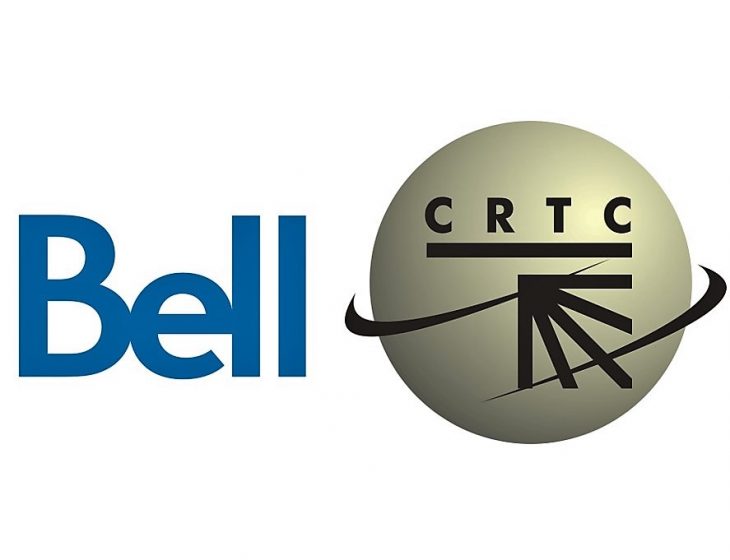
OTTAWA—Public policy should not dictate matters of jurisdiction, lawyers for Bell Canada argued on Tuesday before the Federal Court of Appeal in the company’s nearly two-year-long quest to have the court overturn the CRTC’s mandatory Wholesale Code.
Bell Canada argues that nothing in the Copyright Act or Broadcasting Act gives the Commission the right to impose certain prices and other commercial terms for TV programmers to license their programming to BDUs, which is Bell’s main beef with the Wholesale Code.
“There is no doubt that the CRTC has wide discretion” to regulate programming negotiations, “but its power to do so is not unfettered,” said McCarthy Tétrault lawyer Steven Mason, acting for Bell, said in front of a panel of three justices. The Commission is relying on its public policy mandate, not jurisdiction, which is wrong, he said.
When Parliament passed the Copyright Act, it “carefully balanced” the rights of content creators and users, Mason argued. The Wholesale Code upsets that balance by taking away the rights of creators. “It’s not for the CRTC to come along and put its thumbs on the scale,” he said. “It’s for the author to decide how to exploit his or her work.”
The Copyright Act focuses on the economic rights of creators to negotiate whatever price they want for their work, which is Bell’s bread and butter as programmers, Mason said. But the Wholesale Code “gives more economic might to the BDU than Parliament intended…The importance of copyright as an economic right cannot be overstated.”
The CRTC is trying to create new rights for copyright users, which is actually the purview of the Copyright Act, Bell claims in its court submission. “Parliament withheld in the Copyright Act the very user right the CRTC now purports to create because the Canada-U.S. Free Trade Agreement specifically prohibits the retransmission of all programs not carried in over-the-air signals unless the copyright holder, in this case the Programming Undertaking, authorizes the retransmission. As such, under the Copyright Act, Distribution Undertakings cannot retransmit copyrighted programs in pay and specialty signals without the authorization of the Programming Undertaking. Yet the Wholesale Code purports to give Distribution Undertakings that user right in pay and specialty signals.”
Bell’s case leans heavily on the 2012 Supreme Court of Canada ruling that the CRTC does not have jurisdiction to allow conventional broadcasters to negotiate with BDUs to get a fee for carrying their signals. Mason said that fee-for-carriage decision made it clear that the Supreme Court finds that the Broadcasting Act does not give the CRTC jurisdiction to issue orders that conflict with the Copyright Act, like the Wholesale Code does.
“If accepted, Bell’s copyright arguments would effectively immunize programming undertakings from CRTC regulation, since almost all pre-recorded TV programs qualify for copyright protection.”
Lawyers for the respondents urged the judges during the one-day hearing to dismiss Bell’s appeal, arguing that the Wholesale Code, which the CRTC made mandatory in 2016 as part of its Let’s Talk TV policy review, falls within the Commission’s jurisdiction in the Broadcasting Act. The Commission implemented the code as a matter of public policy to protect BDUs from abusing their market power, said Michael Ryan, representing TELUS. “What the commission is concerned with here is the cultural issue.” The economic issue central to Bell’s argument is “incidental,” he said.
The Wholesale Code is not at odds with the Copyright Act, argued Judith Robinson, representing Cogeco. The burden is on a challenger to demonstrate the invalidity of the Wholesale Code. The court should not scrap it and let Bell’s programming services do whatever it wants, she said. “I wonder who is watching if not the CRTC?”
Lawyers representing several respondents, including independent pay and specialty services under the Independent Broadcast Group, the CBC, and Pelmorex Communications Inc., argue that Bell has “unclean hands” because in 2013 it agreed to conditions of licence found in the 2011 voluntary Wholesale Code in order for the CRTC to approve its acquisition of Astral Media. But then when the Commission made its Wholesale Code mandatory in 2016, Bell claimed that the Code was outside its jurisdiction. In abiding by the voluntary code, “All the players… knew that safeguards were in order,” said Christian Leblanc. By asking the court to overturn the Wholesale Code, Bell is trying to strengthen its vertical integration as a BDU and programmer without any safeguards, he argued. (Bell filed its appeal as both Bell Canada and Bell Media Inc.) Leblanc noted that the CRTC stated that without these safeguards, it would not have approved the takeover of Astral as it would not be convinced the deal was in the public interest.
That broadcasting group’s filing with the court argued that Bell is asking the court to strike down the entire Wholesale Code even though some aspects, such as reporting requirements and the non-discrimination rule for marketing support, “have nothing to do with copyright.” Similarly, Bell’s argument that the CRTC cannot regulate economic terms of carriage is “sweeping,” the document stated. “If accepted, Bell’s copyright arguments would effectively immunize programming undertakings from CRTC regulation, since almost all pre-recorded TV programs qualify for copyright protection.”
Another lawyer representing Bell, Brandon Kain, stated that the company was not trying to do a “bait and switch” regarding its conditions of licence. “There was no conspiracy to hide anything from the court,” he said.
In seeking clarification from Bell, Mr. Justice Donald J. Rennie asked whether the Copyright Act obligated programmers to sell their works to distributors. When Mason said no, Mr. Justice Rennie replied, “So you are not forced to sell.” The judges did not make any statements or ask any questions regarding Bell’s dual role as a broadcaster and distributor.
The court is expected to issue its decision sometime in the new year.



